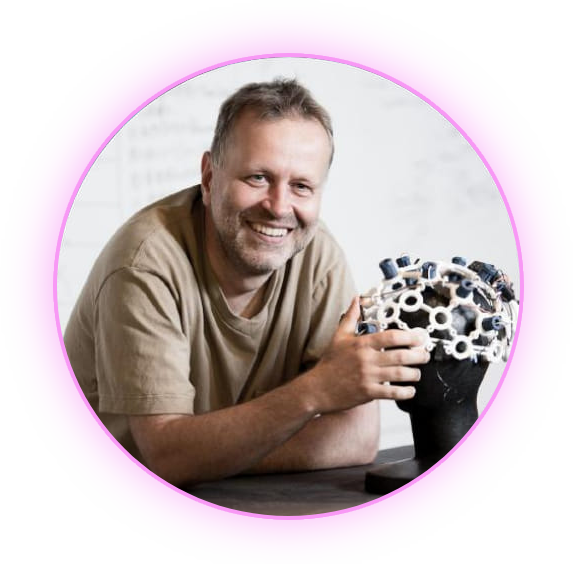Keynotes

Dr Tomasz M. Rutkowski
Dr Tomasz M. Rutkowski received his M.Sc. in Electronics and Ph.D. in Telecommunications and Acoustics from Wroclaw University of Technology, Poland, in 1994 and 2002, respectively. He received postdoctoral training at the Multimedia Laboratory, Kyoto University.
His work as a research scientist at RIKEN Brain Science Institute from 2005-2011, demonstrates his exceptional contributions to the field he works in. From 2011-2016, Tomasz served as an assistant professor at the University of Tsukuba and a visiting scientist at RIKEN Brain Science Institute. He also served as a visiting lecturer at The University of Tokyo and was a member of an AI startup in Tokyo.
Currently, he is a research scientist at the RIKEN Center for Advanced Intelligence Project (AIP) and a research fellow at The University of Tokyo and Nicolaus Copernicus University. Tomasz's research interests include computational neuroscience, especially brain-computer interfacing (BCI), computational modelling of evoked brain processes and awareness, and AI applications for dementia biomarkers elucidation.
His outstanding achievements include The BCI Annual Research Award 2014 for the project "Airborne Ultrasonic Tactile BCI" and a nomination for the award in 2016. He also promotes diversity in research by serving as a jury for the Maria Sklodowska-Curie Prize for Young Female Scientists in Japan.

Prof. D. Dean J. Krusienski
Prof. D. Dean J. Krusienski is a Professor and Graduate Program Director of Biomedical Engineering at Virginia Commonwealth University in Richmond, Virginia, where he also directs the Advanced Signal Processing in Engineering and Neuroscience (ASPEN) Laboratory. He received the B.S., M.S., and Ph.D. degrees in Electrical Engineering from The Pennsylvania State University, University Park, PA and conducted postdoctoral research at the Brain-Computer Interfaces Laboratory of the New York State Department of Health.
He has co-authored over 100 peer-reviewed publications related to advancing brain-computer interface and neural signal analysis techniques, which have collectively received over 11,000 citations. His lab's work has been funded by NSF, NIH, NASA/NIA and DoD, including current projects on intracranial speech decoding and synthesis, closed-loop DBS, biomarkers of hippocampal and sleep pathologies, user-state estimation, visual and auditory processing, and virtual reality applications.

Dr Bogna Bylicka
Dr Bogna Bylicka is an AI Research Scientist at Intel and an external lecturer at Nicolaus Copernicus University in Poland. With a background in quantum physics, having earned her doctoral degree from NCU in 2014, she transitioned into the field of artificial intelligence.
Deeply facilitated by the synergistic relationship between AI and neuroscience, her current research focuses on multimodal AI. She was recognised as one of the Top 100 Women in AI by Perspektywy 2022.

Prof. C. Shawn Green
Prof. C. Shawn Green received Ph.D in Brain and Cognitive Sciences from the University of Rochester and then completed post-doctoral training in computer vision and machine learning at the University of Minnesota before joining the Psychology faculty at the University of Wisconsin-Madison in 2011.
His research focuses on human learning - predominantly in the perceptual, motor, and cognitive domains – and how to improve individuals’ perceptual and cognitive skills via purposefully designed training regimens as well as commercial off-the-shelf video games. He also has research interests in a variety of other domains related to video game play and virtual reality.
Prof. Green has published over 100 peer-reviewed scientific papers and 16 book chapters with his work being cited over 20,000 times all told. His work has been funded by the National Institutes of Health, National Science Foundation, and the Office of Naval Research. He is currently Editor-in-Chief for the Journal of Cognitive Enhancement and Associate Editor for Technology, Mind, and Behavior.
 Prof. Piotr Szczuko
Prof. Piotr Szczuko
Prof. Piotr Szczuko (associate prof.) is a researcher and teacher in the Multimedia Systems Department at Gdansk University of Technology. He is interested in responsibility, ethics and explainability of artificial intelligence and its applications in teaching, communication and creativity.
He is an expert in the optimization of artificial neural networks, language models and multimodal data processing. He has co-authored more than 100 publications on interdisciplinary applications of machine learning. He shares his knowledge through social media, lectures and podcasts.

Dr Anna Ciaunica
Dr Anna Ciaunica is Principal Investigator at the Centre for Philosophy of Science and Instituto Superior Tecnico, University of Lisbon, Portugal; and Research Associate at the Institute of Cognitive Neuroscience, University College London, the UK. Before that, she was Research Associate at the Department of Clinical, Educational and Health Psychology, University College London, and a postdoctoral researcher at the Department of Philosophy, University of Fribourg, Switzerland. She obtained her PhD from the University of Burgundy, Dijon, France.
Anna is currently the Lead Investigator on three interdisciplinary projects exploring the relationship between self-consciousness, embodiment, and social interactions in humans and artificial agents.
In her work, Anna combines conceptual and empirical tools using psychophysiological, behavioral, and neural measures from experimental psychology, social neuroscience, Virtual Reality, and robotics to advance our understanding of the fundamental question: ‘What is self-consciousness?’ in humans, and how can we implement it in artificial agents.
She is also the coordinator of the Network for Embodied Consciousness, Technology, and the Arts (NECTArs) – a collaborative platform bringing together artists, researchers, stakeholders, policymakers, and people with lived experiences. NECTArs aims to foster creative solutions to timely questions such as self-consciousness and (dis)embodiment in our hyper-digitalized and hyper-connected world.

